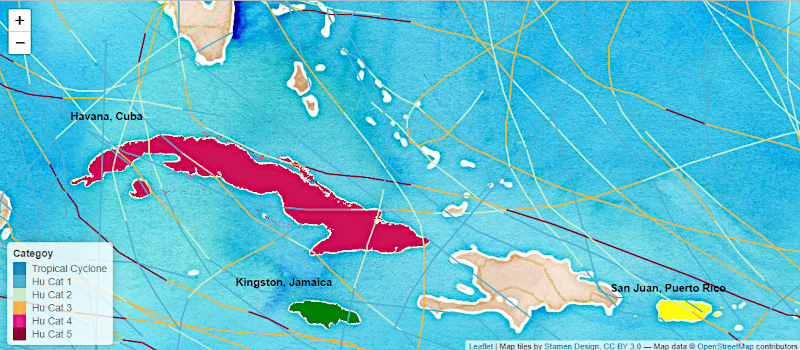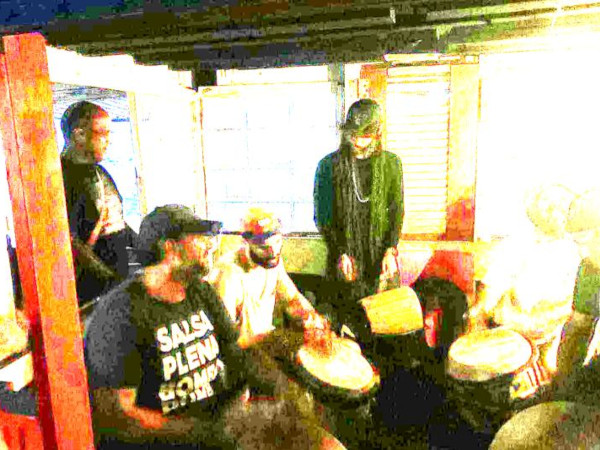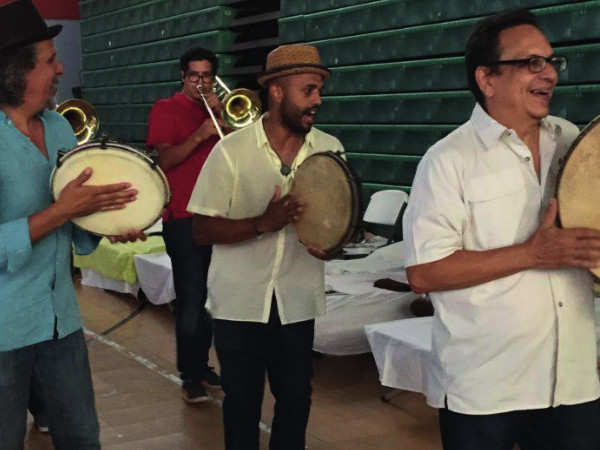I-STREAM
Climate-related Disasters and the Rhythms of Caribbean Music Scenes
About
The I-STREAM project aims to understand the impact of climate-related disasters on the rhythms of musical activity in three tourism-dependent cities in the Caribbean:
- San Juan, Puerto Rico
- Kingston, Jamaica
- Havana, Cuba
To achieve this, the project will combine ethnographic research with the analysis of online videos of live concerts, examining the locations, frequency, and content of live music performances.
The research will provide valuable insights into processes of change and recovery in the wake of climate-related disasters, complementing on-the-ground studies and incorporating feedback from local stakeholders.
The project will achieve this objective by focusing on the following questions:
- What is the relationship between the temporalities of climate disasters and the long-term rhythms of musical activity in Caribbean music scenes?
- How do live music performances intersect with processes of privatization and touristification following climate disasters, and how do these processes shape the types of music performed and how they are experienced?
- How do changing spatial, temporal, and sonic configurations of live music performances in disaster-affected contexts affect their accessibility to local, diasporic, and tourist populations?
Scientific approach
The I-STREAM team will implement an interdisciplinary approach, incorporating innovative methodologies from ethnomusicology and media studies. This approach combines ethnographic research with online video analysis, facilitated through a custom platform design.
Ethnography
The team will conduct participant observation with musicians and audiences at live music events in five contexts:
- small bars or restaurants
- concert halls and arenas
- free public events such as carnival, religious celebrations, or political gatherings
- hotels or resorts
- commercial music festivals
Following Gazit’s concept of the “rhythm of a scene” (2024), specific locations and recurring performance events will be identified in the early stages of the research to delineate one or more “scenes.” In addition to participant observation, researchers will conduct interviews and informal conversations with affected musicians, venue owners, event producers, and government officials to discuss their experiences in responding to and preparing for recurring climate events.
Online media research and digital platform
Spatial, temporal, sonic, and economic factors significantly impact the accessibility of cultural events for diverse populations across racial, gender, and socio-economic lines. To examine the long-term impact of climate events on Caribbean music scenes, this project will compile a database of publicly available online live music videos, covering ten years (2015–2025) of concerts in each participating city. The videos will be coded for venue, location, time, infrastructure and technical setup, genre, artist/group, ensemble, and repertoire based on what is visible in the video and discernible from metadata.
Together, this database and associated platform will allow stakeholders to observe interactions between zones of tourism development and changes in the availability of live music in response to climate events over the last decade. The platform’s design will be developed collaboratively with stakeholders, including musicians, music industry professionals, and cultural administrators.
Events
|
|
19-20/06/2025 - A Field of Islands: Environmental Ethnography through Film, Poetry, Dance, and Music
The theme of this meeting, the inaugural conference for the I-STREAM project, is the practice of fieldwork in contexts of environmental crises, with a focus on the role of expressive culture – particularly music, poetry, and dance. The conference will bring together a diverse group of scholars and artists, both in person and online, to share their research while also discussing challenges and best practices for arts research in the Caribbean, raising ethical questions, theoretical considerations, and practical concerns. We envision this as an opportunity to foster meaningful exchanges around the themes of the I-STREAM project and to build collaborations that will shape our work moving forward. |
610 KB |
Team
Ofer Gazit
Principal Investigator
Ofer Gazit is an Associate Professor of Ethnomusicology in the Department of Philosophy and Cultural Heritage at Ca' Foscari University of Venice, Italy. Gazit teaches and writes about migration, borders, and mobility in the US and the Caribbean from a musical perspective, contributing to publications in sound and media studies, ethnomusicology, and jazz studies.
Laura Burighel
Project manager
Laura Burighel works as Project Manager in the Research Office of the Department of Philosophy and Cultural Heritage at Ca' Foscari University of Venice. She is supporting the implementation of EU-funded projects through budget monitoring and financial report preparation. She studied International Cooperation and Music Education.
Pablo Demetrio Herrera Veitia
Research fellow
Pablo D. Herrera Veitia, Ph.D., is an Afro-Cuban scholar, producer-archivist, and ethnographer whose work bridges Afro-Cuban Yoruba-derived religious practices, global hip-hop, and digital sound ethnography. His publications and projects explore Afro-diasporic sonic memory, multimodal archives, and the politics of noise across urban and diasporic Afro-Cuban musical life and practice.
Coraline Kandassamy
Research fellow
Coraline Kandassamy, ph.D., is a Doctor in Comparative Studies from Florida Atlantic University, Boca Raton, FL. Born in Guadeloupe, French West indies, she specializes in Hip hop studies, Ethnomusicology, and Caribbean Literature. She focuses on the social, political and cultural interpretations of music, whether it is through analysis of the lyrics, performances, or artists. Her interdisciplinary lens merges Art, Literature, Race and Gender Studies.








